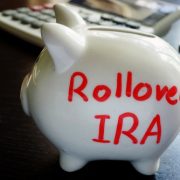Self-Directed IRA Taxation: New Rules Affect UBTI Calculation
Recent changes in the tax law will affect Self-Directed IRA owners who borrow money to leverage investments within their IRAs – especially those who have mortgages within Self-Directed Real Estate IRAs.
Under the terms of the clumsily-named Act to Provide for the Reconciliation Pursuant to Titles II and V of the Concurrent Resolution on the Budget for Fiscal Year 2018 (we know you are hanging on the edge of your seat), there are four changes that have been made to the way we calculate unrelated business income tax – the tax the IRS applies to income and capital gains in Self-Directed IRAs that are attributable to borrowed money rather than your own.
Prior to January 1st, 2018, investors were allowed to aggregate all their unrelated business income from all sources, as well as all expenses, and then calculate the result based on the whole.
The new rules require investors (or, more often, their tax professionals) to calculate unrelated business income and expenses from each investment, separately, and calculate UBTI separately.
This effectively prevents tax-exempt organizations from using losses in one unrelated business activity to offset gains in another. It also may affect some Self-Directed IRA owners with multiple leveraged properties within their IRAs.
The Act also effectively lowered Section 11 taxes in most cases, reducing the separate tax brackets of 15% (on unrelated income lower than $50,000), 25%, 34% and 35% down to a flat rate on all such income of 21%.
This hurts smaller investors, since it represents a tax increase on amounts below $50,000. But it benefits the larger investors with very substantial portfolios. The breakeven point at which you begin benefitting from the flat tax rather than the graduated tax system comes at $90,385. Under that figure, you are hurt by the new rule. Over that income level, you benefit from it.
The Act also imposes a cap on net operating losses. NOLs are now limited to 80 percent of unrelated business taxable income, and limits carryforwards, make it more difficult to gain credit for losses taken in prior years. Carrybacks are also effectively eliminated.
The fourth way Congress changed UBTI taxation involves compensation to employees of tax-exempt organizations and is unlikely to affect most Self-Directed IRA investors. If you are curious, the new rule requires any transportation fringe benefits paid to employees, any amounts spent to support an on-site athletic facility, and any amounts spent on a qualified parking facility to be added to UBTI, unless the same benefits are also offered to volunteers.
These changes will primarily affect Self-Directed IRA owners with significant mortgages, because income and gains attributable to borrowed money, as opposed to your own contributions and earnings on your own contributions, will be taxable under UDIT rules.
401(k) accounts will generally not be affected.
American IRA, LLC does not give individualized tax advice. This article is for general informational purposes only. For information specific to your individual situation, you should consult a qualified tax professional.
Interested in learning more about Self-Directed IRAs? Contact American IRA, LLC at 866-7500-IRA (472) for a free consultation. Download our free guides or visit us online at www.AmericanIRA.com.









